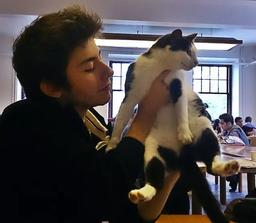Reflexive voice is used when the object and subject of the sentence is the same. In other words, when we want to talk about actions that we do to ourselves, we use reflexive voice. In Turkish the suffix we use for this function is -(İ)n. This is not a widely used suffix, and it cannot be attached to many many verbs. However some of the verbs that it can attach are quite frequently used. Let's see some examples:
| to wash one's self | yıkanmak |
| to dress one's self | giyinmek |
| to comb one's hair | taranmak |
Note that this suffix has the same form as the -(İ)n form of the passive voice suffix. This may seem confusing, but the context often makes clear which form is used, as you can see in the table below.
| Reflexive | Passive | ||
|---|---|---|---|
| I washed my self. (I took a bath/shower) | Yıkandım. | The car is washed. | Araba yıkandı. |
| I dried myself off. | Kurulandım. | The car is dried off. | Araba kurulandı. |
It is clear that the car cannot wash or dry itself, that's why we know that the right column uses the passive form. We also know that if a person is able-bodied, then yıkandım and kurulandım are likely to be reflexive. This would change however, if we knew that the person in the sentence does not have arms, in which case it is more likely for yıkandım and kurulandım to be passive.

